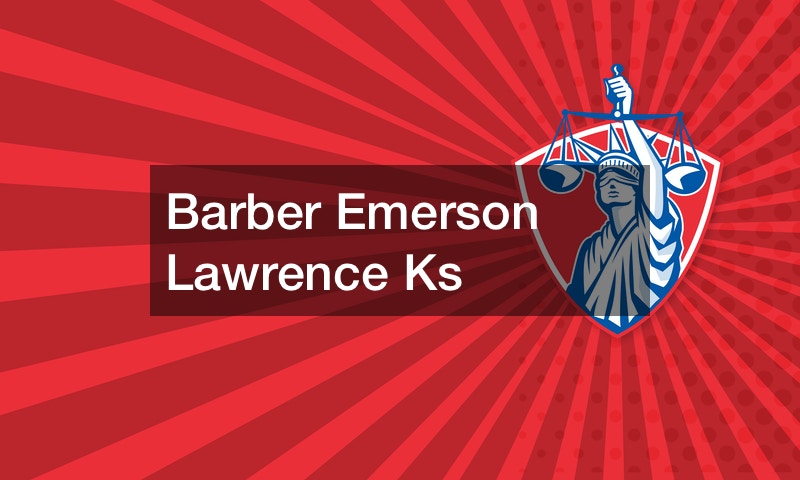
Divorce can be an emotional and challenging journey, often filled with conflict and stress. However, it does not always have to end in hostility and discord. Collaborative divorce is a process that allows couples to work together towards a settlement peacefully and amicably. At the heart of this process are collaborative divorce attorneys who play a vital role in facilitating these discussions. This article explores how these legal professionals help couples reach peaceful resolutions, underlining their pivotal role in the collaborative divorce process.
The Role of Collaborative Divorce Attorneys
Collaborative divorce attorneys are specially trained to assist couples in resolving their disputes outside of court. These legal professionals prioritize open communication and cooperation between spouses, allowing for more creative, customized, and mutually beneficial outcomes. Unlike traditional adversarial divorce proceedings, collaborative divorce focuses on finding solutions that are acceptable to both parties without litigating in court. The attorneys involved in the process agree from the outset that they will not represent the parties in future court proceedings should the collaborative process fail. This commitment ensures their focus remains on resolution through negotiation and collaboration.
One of the primary responsibilities of collaborative divorce attorneys is to facilitate constructive dialogue. By encouraging open and honest communication, they help clients express their needs and concerns clearly. This dialogue is crucial in ensuring both parties feel heard and understood, minimizing misunderstandings and conflicts. Additionally, these attorneys often work alongside other professionals, such as financial advisors and therapists, to provide comprehensive support for the couple. This multidisciplinary team approach ensures that all aspects of the couple’s life are considered, leading to well-rounded and satisfactory agreements.
Throughout the process, collaborative divorce attorneys maintain a focus on the future rather than dwelling on past grievances. They help clients develop a forward-looking perspective, emphasizing solutions instead of problems. This perspective shift is essential for parties to move on with their lives amicably. Moreover, collaborative divorce is often less time-consuming and costly than traditional litigation, offering a significant advantage for couples seeking efficient solutions. By keeping the process streamlined and focused, attorneys can help spouses resolve more swiftly and with less financial burden.
Benefits of Collaborative Divorce
Collaborative divorce offers multiple benefits that contribute to a more peaceful resolution for divorcing couples. One of the most significant advantages is the preservation of an amicable relationship between the spouses. This positive outcome is particularly important when children are involved, as it helps in maintaining a cooperative parenting dynamic. By avoiding contentious court battles, parents can focus on creating a stable environment for their children. Additionally, the collaborative process encourages spouses to work collaboratively to resolve their differences, promoting mutual respect and understanding.
Another crucial benefit of collaborative divorce is the privacy it affords. Unlike court proceedings, which are public record, collaborative divorce negotiations remain confidential. For many couples, this discretion is invaluable, allowing them to keep personal matters away from the public eye. Privacy considerations often make collaborative divorce a more attractive option for individuals concerned about protecting their reputations and sensitive family matters. Moreover, the collaborative approach emphasizes transparency, ensuring that both parties have access to all relevant information, which builds trust and reduces suspicion.
Finally, collaborative divorce is known for its flexibility and adaptability. Couples have more control over the outcome of their divorce settlement, in contrast to traditional court decisions imposed by a judge. This flexibility means that agreements can be tailored to meet the unique needs of the family, leading to more satisfactory and sustainable solutions. Additionally, the collaborative process is often faster than litigation, allowing families to move forward sooner. By working with collaborative divorce attorneys, couples can negotiate settlements that reflect their values and goals without the stress of court-imposed deadlines and outcomes.
Challenges in Collaborative Divorce
Despite its numerous benefits, the collaborative divorce process is not without its challenges. One of the main hurdles is ensuring that both parties are genuinely committed to the process. Collaborative divorce relies heavily on trust and cooperation, and each spouse needs to engage in good faith. If one party is unwilling to be transparent or cooperative, resolving can become difficult. Collaborative divorce attorneys must be adept at identifying and addressing any reluctance early in the process, fostering an environment of trust and collaboration.
Additionally, emotions can run high during divorce proceedings, and constructively managing these emotions is crucial. Collaborative divorce attorneys need to be skilled in conflict resolution and emotional intelligence to navigate these emotional waters. By helping clients manage feelings of anger, resentment, or sadness, they can keep the focus on resolving the issues at hand. This emotional support is vital in preventing disputes from derailing the collaborative process. Attorneys often work with therapists or counselors as part of the collaborative team to provide additional support in managing emotions effectively.




